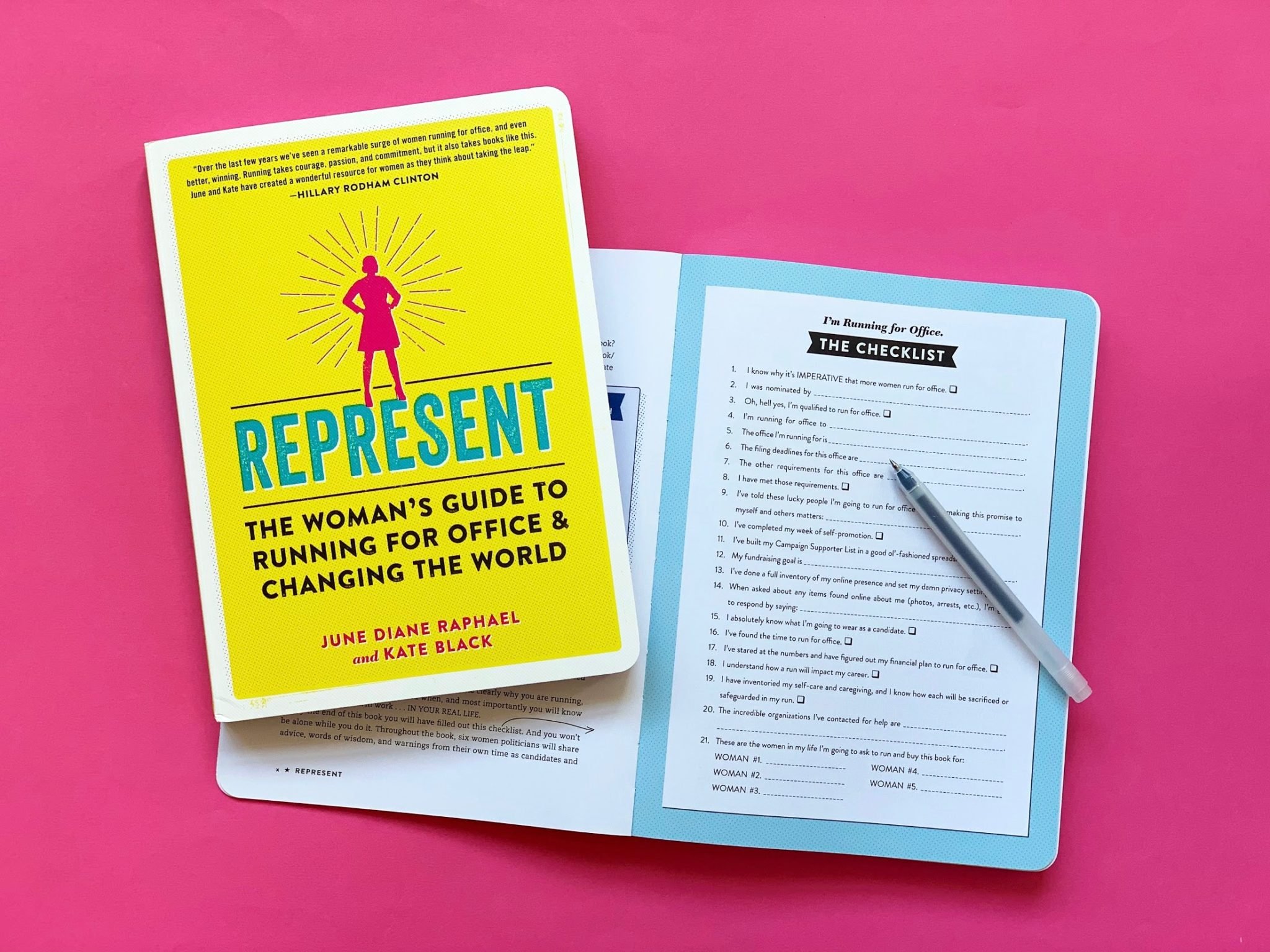Not so long ago, Kate Black was Chief of Staff at EMILY’s List, the political fundraising group that backs Democratic women running for office. Then she made an unusual choice, coming to Washington during the Trump administration to serve as a policy advisor at the FCC under Commissioner Jessica Rosenworcel.
Two years later, Black has written a guide for women to run for office: Represent: The Woman’s Guide to Running for Office and Changing the World (Workman Publishing). Co-written with the actress June Diane Raphael (who stars in the Netflix show Grace and Frankie), the book offers a 21-point checklist for women, covering fundraising to balancing family life.
At a Politics and Prose event Wednesday, Black will be interviewed by EMILY’s List director Emily Cain. Black spoke with Washingtonian ahead of the event to discuss what she learned writing the book.
Washingtonian: How serious is the state of the problem right now when it comes to women seeking office?
Black: Women hold just 23 percent of the seats in Congress, 29 percent of state legislative seats, and almost half the states in this country have never had a woman governor. Women are over half the population. So while we saw a historic wave of women elected to office in 2018, we still have work to do.
The checklist approach suggests the problem is informational. If a society has cultural barriers to the idea of women holding office, does better information change the equation for women?
I think so. For too long, women, especially women of color, have been kept out of politics and public service. Research shows that the more women we see on the ballot, the more [other] women are encouraged to run. So with the book, I hope women see the many ways they can not only see how a campaign and leadership can work in their own lives, but how they can support other women candidates, too.
Did writing the book give you any new perspective about the work you used to be doing at EMILY’s List?
It’s one thing to help another woman run for office, but to put yourself in those shoes—it’s a whole different ball game! I thought a lot about the questions we ask our readers to consider: would I have to quit my job? Would I have to move to run? What about my partner and his job? Could I win? And having a baby in the middle of writing this book made me think even harder about how campaigns do, or do not, center motherhood.
What were some of their contributions of women who had run successfully or unsuccessfully?
We wanted to include as many voices as possible so that any woman who picks up this book could see themselves in its pages. So we surveyed women holding offices up and down the ballot and from across the country. Readers hear advice and words of wisdom from Congresswoman Ayanna Pressley, Congresswoman Pramila Jayapal, Seattle Mayor Jenny Durkan, former Colorado Speaker of the House Crisanta Duran, Columbus City Councilwoman Liz Brown, and local Massachusetts elected official Jordan Evans. All of these women shared what made them want to run, the obstacles they faced, and how they overcame them to win.
Was there a story from those encounters that really surprised you?
The stories that stand out the most to me were from Congresswoman Jayapal, who describes in the book how she was an activist and an advocate for so long, working on changing policies from the outside, until she decided she needed to stop asking others to make the changes she wanted to see, and instead decided to run herself. I was also struck by Mayor Durkan, who shared that even though she is an introvert, it’s her ability to listen and connect with people that helped her win. Usually we think of politicians as these extremely extroverted people, but it doesn’t have to be that way.
And lastly, Jordan Evans—she is just amazing. She is the only openly transgender elected official in the Republican Party, and her thoughts on the importance of running as your full, authentic self are so powerful.
Running for office is hard on family life in myriad ways. Is that experience felt more acutely by some women? Or are there ways that running for office is a specific burden for women in particular?
Women are still doing a majority of the care work—both paid and unpaid—in today’s families. So we provide women thinking about running for office ways to figure out how it can work in their real lives, both in terms of the care they give, but also the care they need for themselves. Today’s generation is going to be caring for aging Baby Boomers while at the same time raising the next generation. We should make sure they have the tools to do it, too.
Are there policy ideas that could encourage more women to run?
I was so encouraged to see the Federal Election Commission change its rules to allow for campaign funds to pay for child care for candidates. This rule change will open the door to parents with small children who want to run. Women do so much. Leadership should be available to them too.
Kate Black and Emily Cain will discuss Represent at Politics and Prose at The Wharf, Wednesday, September 18 from 7 p.m. to 8 p.m. Details of the event, which is free, are here


















